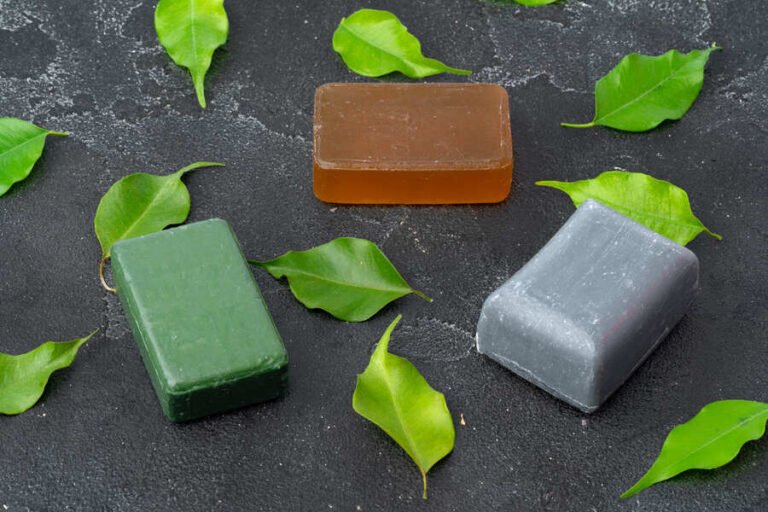Tired of dealing with broken nails and struggling to keep your fake nails in place? You've probably considered using nail glue or super glue, but which one is best for your needs?
In this article, we'll explore the key differences between nail glue and super glue and help you understand which one is the right choice for you.
So, let's dive in and discover the difference between nail glue and super glue, giving you the freedom to choose what works best for you.
Key Takeaways
- Nail glue is designed for fake nail application, while super glue is commonly used for repairs.
- Super glue can be harsh on the skin and nails, while nail glue is gentle.
- Super glue dries more quickly than nail glue, while nail glue provides more flexibility and time for adjustments.
- Nail glue is removable with acetone, while super glue may require harsher solvents.
Nail Glue: Characteristics and Benefits
Nail glue provides several characteristics and benefits that make it a popular choice for fake nail application.
When it comes to applying fake nails, nail glue offers a strong and long-lasting bond. Its adhesive properties ensure that your nails stay in place for extended periods of time.
Additionally, nail glue is gentle on the skin and nails, reducing the risk of damage or irritation.
One of the advantages of using nail glue is its ease of removal. Unlike other adhesives, nail glue can be removed using simple techniques such as soaking your nails in acetone-based nail polish remover or wrapping them with acetone-soaked cotton balls.
This makes the process of taking off fake nails much easier and less damaging to your natural nails.
Super Glue: Properties and Advantages
When it comes to using super glue, you can enjoy its strong bonding properties on a wide range of materials and the convenience it offers. Super glue is known for its ability to create a durable and long-lasting bond. It can be used on various surfaces such as plastic, metal, and glass, making it a versatile adhesive.
One of the advantages of super glue is its quick drying time, allowing for fast repairs and projects. However, it's important to note that super glue should be used with caution. Potential dangers include skin irritation and the risk of accidentally bonding skin together. It's important to follow proper application techniques and avoid contact with skin to prevent any potential harm.
Gorilla Glue Vs. Super Glue: a Comparison
If you're considering using Gorilla Glue or Super Glue, you may be wondering about the differences between the two. Gorilla Glue has some advantages over Super Glue that you should know about.
One major advantage is that Gorilla Glue is a polyurethane-based adhesive that requires moisture to cure, while Super Glue doesn't have this requirement. This means that Gorilla Glue can be used on materials like wood, metal, and ceramics, whereas Super Glue is better suited for plastic, metal, and glass.
Additionally, Gorilla Glue provides a stronger bond on porous surfaces and has better resistance to impact and temperature changes. So if you're working with materials that require a stronger and more durable bond, Gorilla Glue might be the better option for you.
The Risks of Using Super Glue on Nails
You should be aware of the potential risks and dangers of using super glue on your nails.
While super glue may seem like a quick fix for broken or cracked nails, it can have long-term effects on your nail health. One of the dangers of using super glue on nails is that it can damage the nails, making them brittle and weak. The strong adhesive properties of super glue can strip the nails of their natural oils and moisture, leading to dryness and breakage.
Moreover, super glue can cause skin irritation, redness, and roughened skin around the nail area. It's important to note that using super glue on nails isn't recommended by professionals due to the potential for skin irritations, allergic reactions, and even chemical burns.
To protect your nail health, it's best to avoid using super glue and opt for safer alternatives such as nail glue or nail adhesives specifically designed for fake nails.
Alternatives to Nail Glue for Fake Nails
For applying fake nails, you can consider using sticky nail tabs as an alternative to glue. These tabs are adhesive strips that can securely hold fake nails in place without the need for traditional nail glue. They're easy to apply and remove, making them a convenient option for those who want to experiment with different nail looks.
Another alternative to nail glue is gel polish. While gel polish is typically used for creating long-lasting manicures, it can also be used as a temporary adhesive for fake nails. Simply apply a thin layer of gel polish to the natural nail and press the fake nail onto it. This method provides a strong bond and can be easily removed with acetone.
If you prefer a DIY approach, you can make your own nail glue using white PVA glue and clear nail polish. Mix equal parts of the glue and polish, and apply it to the natural nail before attaching the fake nail. This homemade adhesive can provide a secure hold and is easily removable with acetone.
Proper Removal Techniques for Nail Glue
To properly remove nail glue, begin by soaking your nails in acetone-based nail polish remover or by wrapping them with an acetone-soaked cotton ball. This will help break down the adhesive and make it easier to remove.
Here are some safe removal techniques to prevent nail damage:
- Gently file off the surface or residue of the fake nails. Use a fine-grit nail file to avoid excessive pressure that could damage your natural nails.
- After removing the fake nails, apply cuticle oil and moisturizer to keep your nails and cuticles healthy. This will help nourish and hydrate your nails, preventing them from becoming brittle and weak.
- Follow the recommended steps for safe removal to prevent damage. Avoid forcefully pulling off the fake nails, as this can lead to nail breakage and trauma.
Choosing the Right Adhesive: Nail Glue or Super Glue?
When deciding between nail glue and super glue, it's important to consider their differences and choose the adhesive that best suits your needs.
Let's start with nail glue. One of the pros of using nail glue for nail art is that it's specifically designed for fake nail application. It's gentle on the skin and nails, making it a safer option. Nail glue also provides more flexibility and time for adjustments before it fully dries.
On the other hand, super glue is a pure cyanoacrylate adhesive commonly used for repairs. It dries more quickly and is generally stronger, making it suitable for bonding a wider range of objects. However, super glue can be harsh on the skin and nails, and it may require harsh solvents for removal.
Frequently Asked Questions
Can I Use Super Glue Instead of Nail Glue for Applying Fake Nails?
Yes, you can use super glue instead of nail glue for applying fake nails. However, it's important to know that there are alternative options available and potential risks involved.
Is It Safe to Use Super Glue on My Natural Nails?
Using super glue on your natural nails is not safe. It can cause damage, weaken your nails, and irritate your skin. Nail glue is a better option for nail applications, as it is designed specifically for that purpose.
What Are the Risks of Using Super Glue on Nails?
Using super glue on your nails can be risky. It can damage your nails, cause skin irritation, and be difficult to remove. Professionals don't recommend it due to potential allergic reactions and chemical burns.
Are There Any Alternatives to Nail Glue for Applying Fake Nails?
There are alternatives to nail glue for applying fake nails. Consider using sticky nail tabs, gel nail polish, acrylic mixture, or DIY nail glue made with PVA glue and clear nail polish. Each option has its own pros and cons.
How Do I Properly Remove Nail Glue Without Damaging My Nails?
To remove nail glue without damaging your nails, gently soak them in acetone-based nail polish remover or wrap them with an acetone-soaked cotton ball. Then, file off any residue and moisturize your nails to keep them healthy.
Conclusion
In conclusion, when it comes to choosing between nail glue and super glue, it's important to consider your specific needs and the potential risks involved.
While super glue may offer a stronger bond, it can be harsh on your skin and nails.
Nail glue, on the other hand, is designed specifically for fake nail application, providing a gentle and flexible solution.
So, just like comparing a delicate satin ribbon to a sturdy chain, choose the adhesive that suits your needs and keeps your nails looking fabulous.







